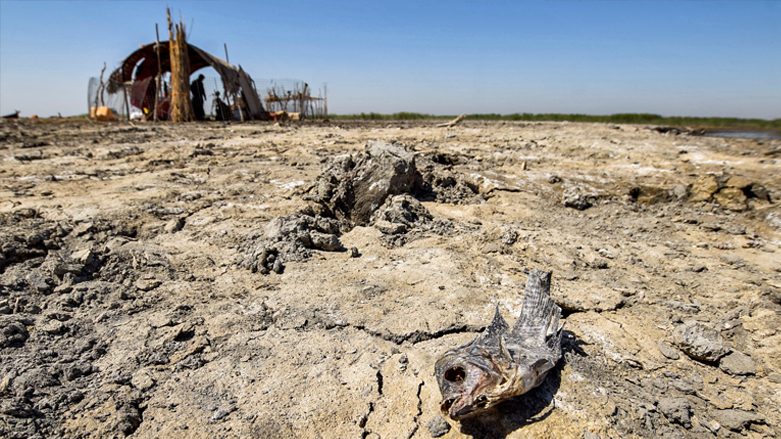Iraqis spend $80 per month on buying potable water due to drought, Norwegian aid group finds
People are “spending so much money on drinking water,” and “now they just plan to leave these areas… because they just can’t live on these lands anymore,” NRC said.

ERBIL (Kurdistan 24) – Lowered river levels caused by climate change and upstream irrigations have led to Iraqis suffering from an unprecedented drought that on average forces them to spend 80$ a month to access clean and safe drinking water, a humanitarian aid group found.
The Norwegian Refugee Council (RFC) conducted field research to determine the extent of the damage the Iraqis and Syrians had suffered due to the drought affecting both countries, where farmlands heavily depend on the Tigris and Euphrates rivers.
The drought is affecting 12 million people in both countries, according to aid groups studying the situation, The World reported.
People are “spending so much money on drinking water,” and “now they just plan to leave these areas… because they just can’t live on these lands anymore,” Samah Hadid, the head of Middle East advocacy for the Norwegian Refugee Council, told The World.
In August, a coalition of aid groups warned that Iraq's 2021 summer was the second-driest season in 40 years.
The Kurdistan Region in Iraq’s north is in a similar crisis. Its capital of Erbil recently suffered widespread water shortages in residential neighborhoods.
The city’s authorities quickly instructed digging wells in the drought-affected areas to resolve the issue temporarily.
Read More: Erbil to drill new well to fight drought-induced water scarcity
Previously, 12 aid agencies announced that wheat production is expected to decrease by half as a result of water source depletion.
Read More: Wheat production in Kurdistan Region could decrease by half due to drought